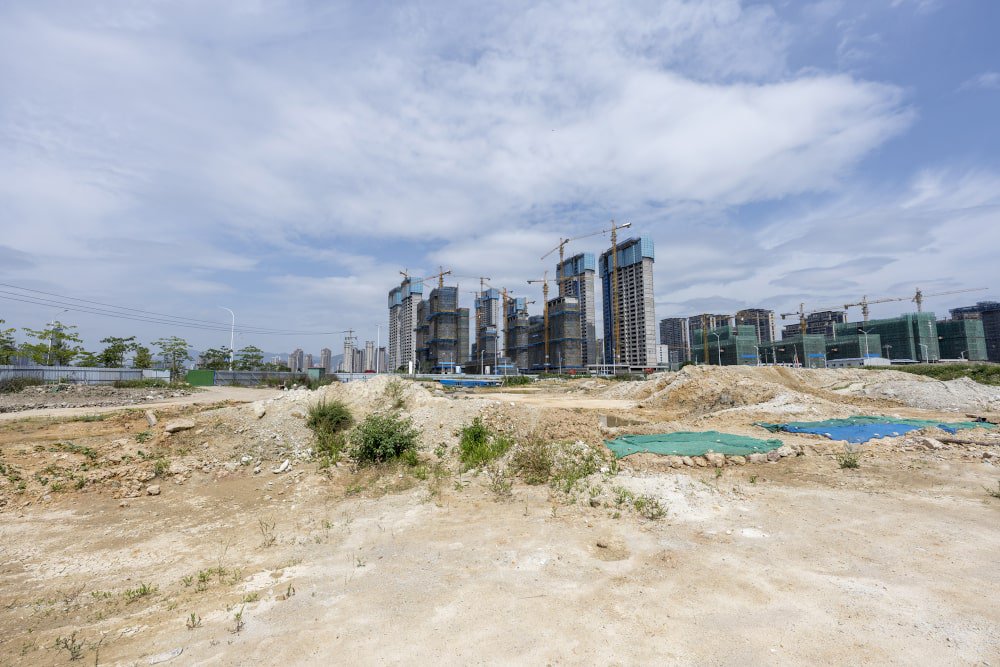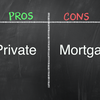Getting a Mortgage for a Pre-Construction Home

Following the hot real estate markets of the past few years, many Canadians have found themselves priced out of the housing sector. In an environment of high interest rates and unrelenting home prices , a pre-construction mortgage can be a saving grace for cost-conscious consumers. Purchasing a pre-construction home in Canada can offer aspiring homeowners the opportunity to customize their living space while also saving on costs.
Understanding the Pre-Construction Home Buying Process
If you are interested in pursuing a pre-construction mortgage, the first step is to familiarize yourself with the buying process. Here are a few of the most common steps to consider:
- Research and Selection: The first step is to research pre-construction residential communities around your ideal city or location. When searching, make sure to consider factors such as developer reputation, amenities, proximity to essential services, and anticipated completion timelines. Attend open houses, review floor plans, and inquire about pricing and payment structures before making your choice.
- Reservation and Deposit: Once you've selected a pre-construction property, you'll typically be required to sign a purchase agreement, as well as provide a deposit to secure your unit. Deposits for pre-construction homes in Canada typically range from 10% to 20% of the purchase price, but this sum is sometimes payable in installments.
- Construction Period: While the home is under construction, you can monitor progress through updates provided by the developer. Be prepared for potential delays, and keep an eye out for any changes to the estimated completion date.
- Closing and Occupancy: As the construction of your home nears completion, you'll likely finalize your mortgage arrangements and prepare for the closing process. Once the property is ready to be occupied, you'll receive the keys to your new home and will commence your mortgage payments.
Although construction times can vary, a single-residential home typically takes around 7 to 12 months to build. In some cases, you may have to wait until other key infrastructure projects are completed before you move into your home. For instance, if a new area of a city is being developed, you may have to wait until the necessary sewage, utility, and road infrastructures have been established before you can move into your home.
Navigating Mortgage Options for Pre-Construction Properties
When obtaining a mortgage for a pre-construction home, there are a number of different options to consider. One important decision is determining whether you would prefer a fixed or a variable-rate mortgage. Evaluating the pros and cons of fixed-rate and variable-rate mortgages can be difficult in the current macro-environment, as future interest rates can be hard to predict. On one hand, fixed-rate mortgages offer stable monthly payments, but you may find yourself locking in a high rate just a year or two before they drop. On the other hand, variable-rate mortgages may bring about cost savings, but you are assuming a degree of risk due to the unpredictable nature of interest rate fluctuations.
Another consideration might be whether or not you need a construction loan . This loan type can be very useful if you require financing during the construction phase. Typically, construction loans disburse funds in one of two ways:
- Completion Mortgage: a completion mortgage does not require the borrower to pay back their loan until after the construction of their home has been completed.
- Draw Mortgage: a draw mortgage gives the borrower access to parts of the loan amount in increments throughout the building process.
Canada Mortgage and Housing Corporation (CMHC) is one example of a construction loan provider. They may be able to connect you with suitable financing options (if eligible), as part of their support of Canadian residential property development.
If you are unsure of which mortgage options are available to you, you may want to obtain a mortgage pre-approval before embarking on your pre-construction home search. A pre-approval letter from a lender demonstrates your purchasing power and strengthens your offer to developers, while also informing you of how much mortgage you can really afford.
Tips for Securing a Mortgage for Your Dream Pre-Construction Home
Once you’ve decided you want to obtain a pre-construction mortgage, there are a few steps you can take to set yourself up for success. Below are some tips you can consider implementing to help you obtain your dream pre-construction home:
- Maintain Good Credit: One of the first things any lender will look at when you apply for a mortgage, is your credit score. In preparation for your mortgage application, prioritize maintaining a healthy credit score by taking out small amounts of debt, and promptly paying them off. This can eventually help you qualify for more favourable mortgage terms and interest rates.
- Save Up for a Down Payment: In order to meet the deposit requirements for your pre-construction property, you may want to start saving for a down payment well in advance. A larger down payment also means a smaller loan, which will reduce your interest expenses in the long run.
- Review Contract Terms : Once you’ve chosen a home, carefully review the terms and conditions of the purchase agreement, including deposit structure, cancellation policies, and recourse options in case of delays or unforeseen circumstances.
- Plan for Additional Costs: Factor in additional costs such as closing fees, land transfer taxes, and condo maintenance fees when budgeting for your pre-construction home purchase. Purchasing a home takes a huge toll on your finances, and as such, it is crucial to build in some buffer room in your finances to avoid falling into financial distress down the line.
- Seek Professional Advice: Navigating the world of mortgage approval can be challenging at times, but professional advice and guidance can often help. You may want to consider consulting a Clover Mortgage broker, or a financial advisor experienced in pre-construction home financing, to help you navigate the process effectively.
Securing a mortgage for a pre-construction home in Canada can often require thorough research, careful planning, and strategic decision-making. By working with a Clover Mortgage broker , you can get one-on-one guidance in understanding the buying process, exploring mortgage options, and finding your dream home. Together with our team, you can confidently embark on your journey towards homeownership and turn your dream of owning a pre-construction property into a reality. Contact us to book your free consultation today!





